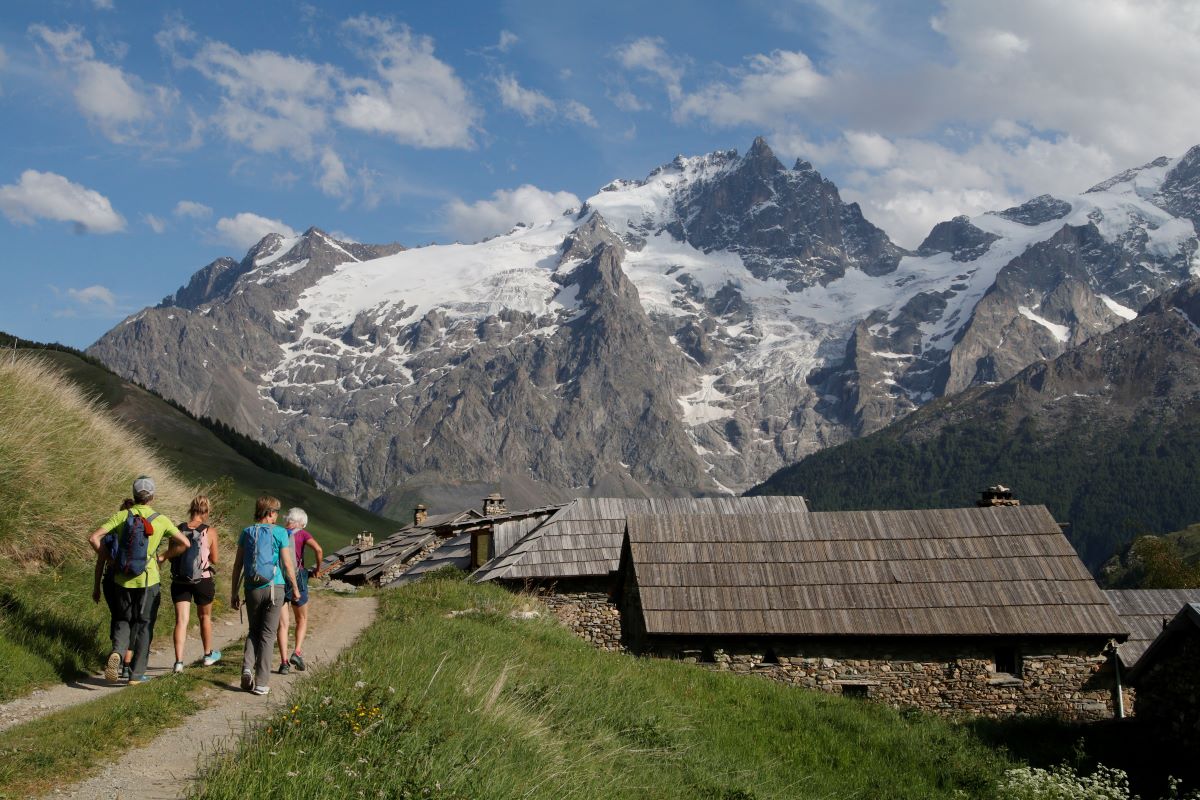
The Buffe valley
The valley pastures are very popular among transhumant herders who bring their flocks from the South of France. Since wolves were seen in the area, the "patou" (a large dog belonging to shepherds) reappeared a few years ago.
Description
From the car park, head down towards the village. At the first crossing, do not go up into the village but take the hairpin to the right towards the ski lifts. At the second crossing, stay on the hillside (do not go down to the stream). Continue on the large track and at the following crossing, turn right towards the three hamlets of Les Rivets. Walk through them to reach La Croix (cross) de Tuf (1901 m). At the cross, go up to the right towards the Orliers mountain hut. Follow the track, cross the Chabanerie stream and go past the chalet that has the same name. Continue along the hillside until you reach the ruins located at the edge of the Courbeille stream. Go down towards the wide track and follow it left for 200 m then cross the Gâ stream (footbridge). Head back up the other side along a steep footpath until you reach the track for Les Combettes. Turn left and follow it to the end arriving at Le Querellé. Do not turn right onto the footpath that leads to Clot Raffin, but continue along the track that goes down to the "pont de la mine (mine bridge)". Cross the stream and head up towards Le Chazelet and the start of the itinerary.
- Departure : Hameau du Chazelet
- Towns crossed : La Grave
5 points of interest
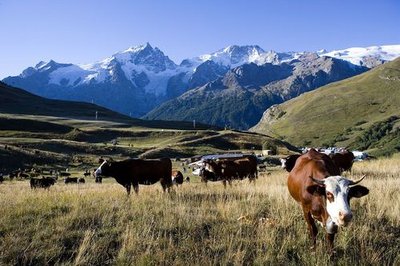
Pastoralisme au Chazelet - Gérald Lucas  Know-how
Know-howChazelet Cattle Fair
This an old market that still exists and gives local farmers the opportunity to sell young "Abondance" or "Tarine" cows, that are needed to make Beaufort and Reblochon cheeses, to farmers from Savoie, Haute Savoie and Italy. The traders, who are easy to identify with their hats and black cloaks, and the worried-looking breeders barter, whilst stalls of bells and other objects lend a festive feel to the event.
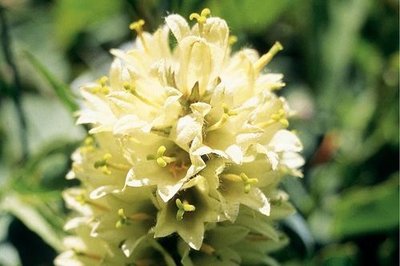
Campanule en thyrse - Bernard Nicollet - PNE  Flora
FloraCampanula thyrsoide
This flower is an emblem of the area of La Grave and is recognisable among all others thanks to its yellow flowers that form a compact flower head also known as "thyrse". It is edible in a cheese-topped bake and is one of the rare biennial alpine plants. The seeds are scattered in the autumn and in the first year grow into big long leaves that form a rosette. Blossoming only occurs in the second year, when after ensuring reproduction, the plant dies.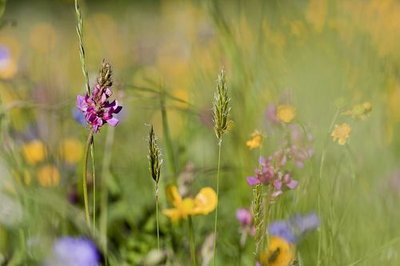
Prairie de fauche - Marc Corail - PNE  Flora
FloraAltitude hayfields
Natural hayfields are of great biological variety and are home to associations of plants that blossom freely. From this botanical variety come a multitude of insects and more particularly butterflies that find an ideal environment for their development. Maintaining the balance of these zones is essential, even more so at this altitude and in such a valley.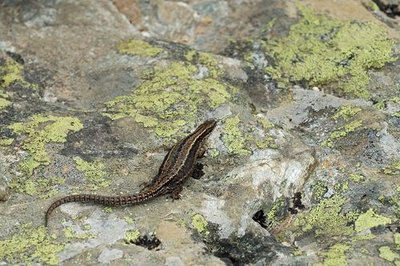
Lézard vivipare - Mireille Coulon - PNE  Fauna
FaunaViviparous lizard
The viviparous or common lizard is present in the north of the park where it lives in cool, damp zones (moors, alpine and subalpine meadows, or at the edge of streams). It has this name as the females, in certain populations, keep the eggs in their abdomen until they hatch. Affected by any development that leads to the destruction of wet zones, it is a protected species all over France and considered vulnerable on a regional level.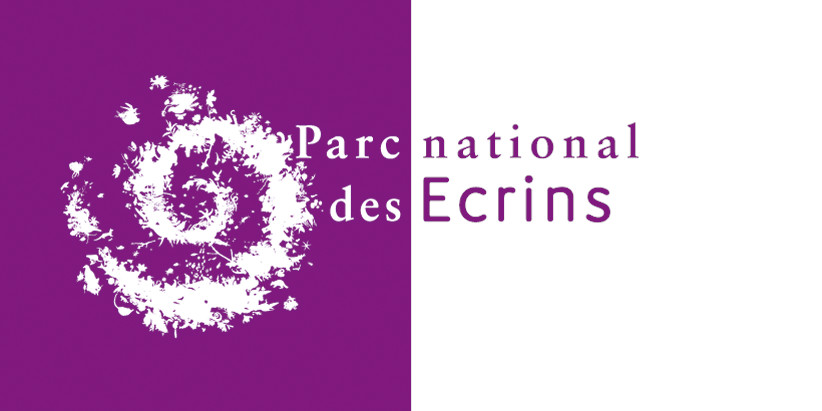
 Fauna
FaunaCommon quail
Generally present in fields of cereal crops, the common quail also occupies the mountain meadows up to 2000 m or more. In the long grass, it pecks at insects and later on at the seeds as they reach maturity. A very discreet bird, it nests in the ground in a little dip, where it can lay twice to replace eggs in the case of destruction. Its song, that can be heard night and day, often gives it away: "pay your debts" is the male's song to keep its rivals at bay.
Forecast
Altimetric profile
Recommandations
There may be herds of cattle on the footpath: walk around them unless you want to face the patou dogs!
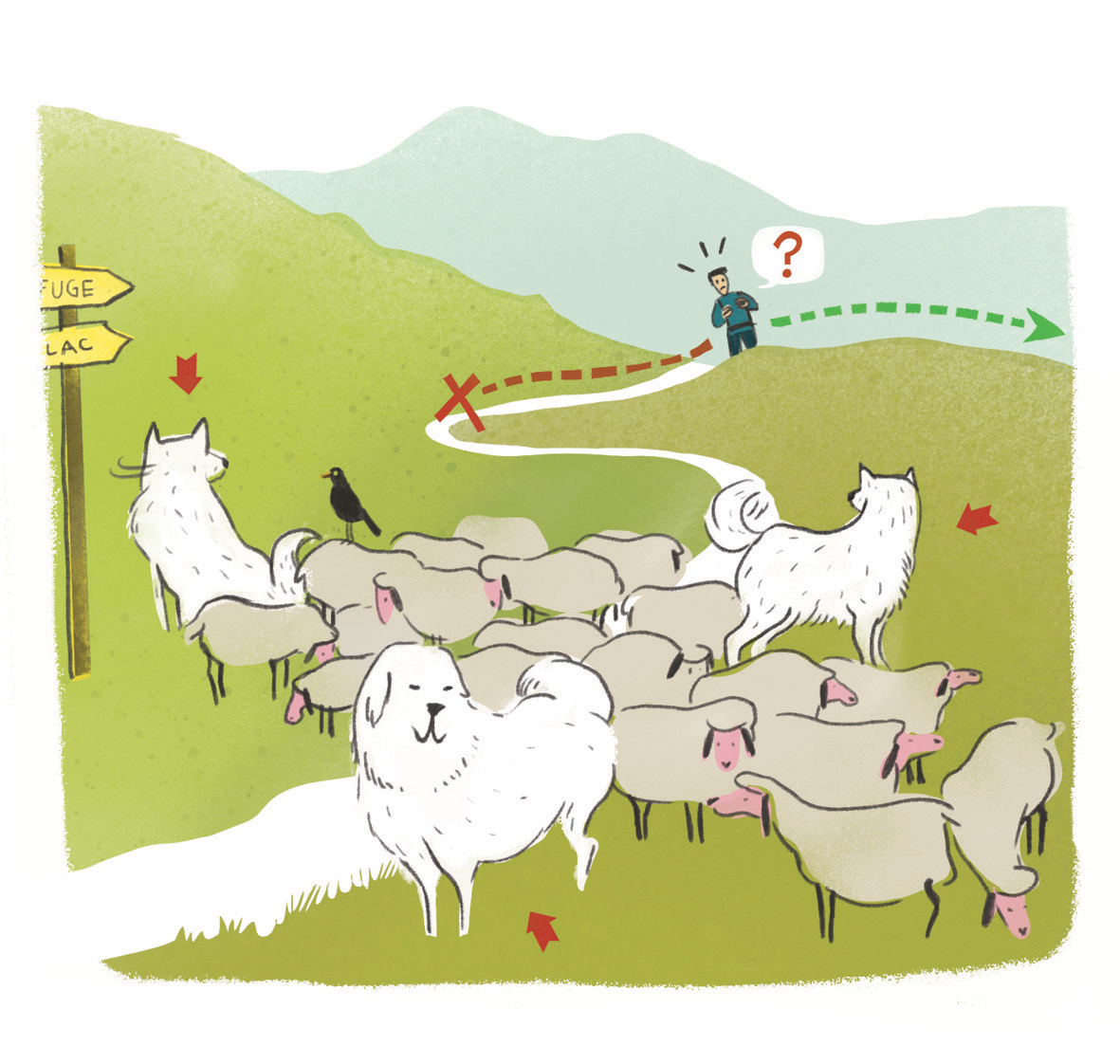 In mountain pastures, protection dogs are there to protect the herds from predators (wolves, etc.).
In mountain pastures, protection dogs are there to protect the herds from predators (wolves, etc.).
When I hike I adapt my behavior by going around the herd and pausing for the dog to identify me.
Find out more about the actions to adopt with the article "Protection dogs: a context and actions to adopt".
Tell us about your meeting by answering this survey.
Transport
Bus Grenoble bus station/SNCF - La Grave / Villar d'Arène - Briançon (LER 35 - Transisère).
Access and parking
From Bourg d'Oisans, follow the D1091 and go through La Grave. As you come out of the tunnel, turn right onto the D33 and head towards Le Chazelet.
Parking :
More information
Source

Report a problem or an error
If you have found an error on this page or if you have noticed any problems during your hike, please report them to us here:
